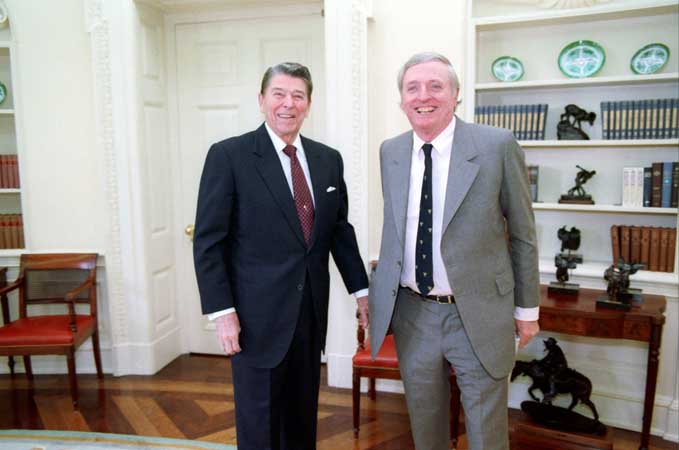
One of the most important contributions that the late William F. Buckley Jr. made to the American conservative movement, apart from his stylish public advocacy of conservative principles — he became a major hero to me already in my early teens — was his effort to create unity among the various factions on the political and cultural right. There were libertarians who were passionately committed to free markets but who cared little if at all about social issues. There were (eventually) neoconservatives who cared everything about foreign policy. There were German or eastern European refugees who were focused entirely on containing Communism and the Soviet threat. Some were almost neo-medieval traditionalists, romanticizing agrarian ruralism and even occasionally savoring somewhat of monarchism. Others were populists. Some cared most about family and cultural values. Some loved Lincoln as the greatest of presidents; some saw him as a disastrously successful advocate of centralized federal power. Some were what is today called “anarcho-capitalists.” And so on.
William F. Buckley and his magazine National Review, founded in 1955, were, in my judgment, essential to the rise of the broader movement that would eventually see the presidential nomination of Senator Barry M. Goldwater and the nomination and election of Ronald Reagan.
Some of his most important work was boundary maintenance, which often occurred in the pages of his magazine National Review, founded in 1955. For example:
- In “Big Sister Is Watching You,” published on 28 December 1957, Whittaker Chambers took a famously critical look at Ayn Rand and her “Objectivism.”
- Buckley’s own campaign against the John Birch Society helped to define serious conservatism, as well. See “The Inside Story of William F. Buckley Jr.’s Crusade against the John Birch Society”
- In 1991, Buckley’s 40,000 word article “In Search of Anti-Semitism” — later transformed into a 1993 book by the same title — warned against seeming anti-Semitism in elements of the political Right, including Patrick Buchanan (who seems to me something of a forerunner of contemporary Trumpism) and, to my sorrow, Joe Sobran.
The American conservative movement has a history. It’s complex, but I’m appallingly old now and I’ve been paying attention to it since I was about fourteen. So I know it relatively well.
Donald Trump was never a part of the American conservative movement. Even now, his relationship to it and to conservative thought is ambiguous at best.
And may I say, too, that the rise of the hyperpartisan Rush Limbaugh and Sean Hannity as the loudest voices on the Right, coupled with the passing of the Yale-educated patrician William F. Buckley and his generation of writers and intellectuals (and, most recently, of Dr. Charles Krauthammer), has not been good for the intellectual health of American conservatism, however effective it has been in ginning up the Republican and/or Trumpist base.
To be continued.












